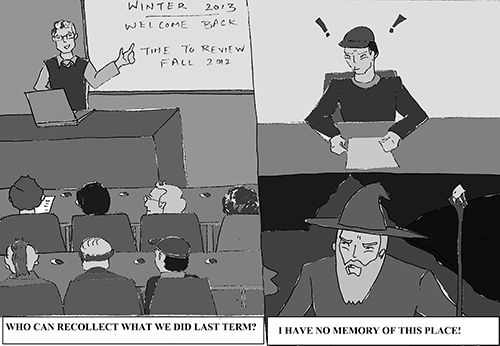In the face of its departure, many political pundits have already declared the 112th Congress the worst in U.S. history. While I could debate the merits of that claim for a while, it’s a fact that while attempting and failing to repeal the Affordable Care Act a total of 33 times, a lot of other important work was never quite accomplished in 2012.
Violence Against Women Act lapses
In the face of its departure, many political pundits have already declared the 112th Congress the worst in U.S. history. While I could debate the merits of that claim for a while, it’s a fact that while attempting and failing to repeal the Affordable Care Act a total of 33 times, a lot of other important work was never quite accomplished in 2012.
This includes, among a great number of other things, rescuing the United States Postal Service and providing disaster relief in the face of Hurricane Sandy; one thing they did accomplish, however, was allowing the Violence Against Women Act to expire for the first time since 1994.
The VAWA provides much-needed funds to law enforcement and social service groups to work against sexual assault and domestic violence. With bipartisan support and authorship, the act easily passed the Senate in April 2012. Unfortunately, the House found itself incapable of reaching a consensus on that act.
The problem was that GOP House members objected to new provisions in the Senate’s VAWA that would provide greater protections for more people. The act has been reauthorized without problems a total of five times in the past.
The only changes to the Senate’s version this April involved greater protection for survivors who identify as sexual or gender minorities (more specifically, gay, lesbian, bisexual and transgender survivors), more protections for survivors who identify as immigrants, regardless of their immigration status, and greater power to tribal courts in hearing sexual assault and domestic violence cases involving women who are tribal members.
All of these provisions are highly important and it is about time they were included.
At the end of the day, while many Republicans objected to all of the new changes, they most strongly opposed greater protections for Native American women, despite a growing number of Republican women who expressed concern over what their party was doing.
The reason the provisions for native women are included is the high rate of sexual assault committed by outsiders on tribal lands. Currently, tribal authorities have little recourse in prosecuting these crimes, so these predators often get away with rape.
A roundtable report by the Native American Women’s Health Education Resource Center found that Native American women face a higher prevalence of sexual assault. They also encounter far more barriers to receiving comprehensive health care and “due process” following an assault. The problem in achieving due process is, in great part, because of the issue of tribal authority, which the VAWA sought to rectify.
It’s incredibly important that all of these survivors for whom the Senate included provisions actually obtain these provisions.
Instead, Republicans submitted a watered-down version of the act, which removed many of the provisions from the Senate’s version. According to the majority of advocates for these issues, the Republican version was, at best, a joke that significantly limited protections for domestic and sexual violence survivors.
Republicans used a number of excuses for their hesitation to grant some specific rights to tribal authorities, but most experts agree that their argument is invalid and really just an excuse to not care about women, sexual or gender minorities and immigrants.
The White House declared it would never sign this version of the act and Vice President Joe Biden, who was a leading proponent of the original act in the ’90s, became involved. Despite intense attempts at negotiation, the GOP still refused to pass the VAWA.
Rep. Eric Cantor, R-Va., even tried to hold a special meeting to try to convince Republican women to block aid to LGBT, immigrant and native survivors. Ten House Republicans signed the Democratic Party’s letter urging the passage of the VAWA, and every single Democratic congresswoman sent a letter to the Republican women with whom Cantor met, asking them to stand up in support of women. But the VAWA was still allowed to lapse.
Again, just to clarify, this act had bipartisan authorship and support in the Senate.
The VAWA pays for things such as counseling after a sexual assault and advocates trained in these issues. The fact that the House GOP cannot even pretend to understand the nuances of sexual assault and domestic violence (as evidenced by a number of statements and legislation last year) and get their act together for this one is a despicable failure on their part.
Furthermore, organizations who work to advocate for survivors are busy using resources to advocate for the VAWA’s passage that could instead go toward helping survivors in other ways, if the GOP would just stop trying to actively hurt women.
I can only hope that with the departure of a few more extremist members of the House, the next Congress will look toward ensuring the VAWA’s ratification.






Repeal VAWA!!! This is sexist law!!! Thanks for making sure only women matter!! Go Away!!! I would vote against this bill, too.
This law is anti-male, not pro-woman. You ought to be ashamed of yourself!!!